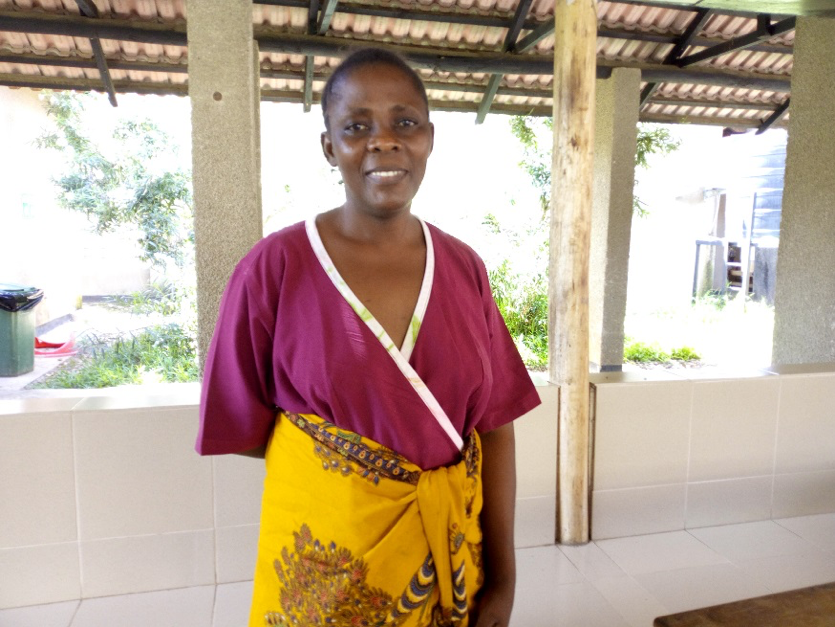Beginning a “new chapter”: Meet Asha
In early 2019, thanks to donor and partner support, Kupona’s local partner CCBRT launched a mobile info-line that provides pre-recorded Swahili audio content to callers completely free of charge – the first nationally available compilation of educational audio content about fistula. Called “Elimika,” the service has already been strikingly successful in reaching women living with fistula, like Asha. In its first month of operation, more than 300 calls were directed to CCBRT by the service, and eight patients were referred for treatment as a direct result of the service’s audio content.
Asha*, 44, is a mother of six from the Mara region of northern Tanzania, close to the border of Kenya. In 1996, when Asha was 23, she was excited for the birth of her second child. Her labor pains came on suddenly, and she found herself giving birth at home. Asha’s labor and delivery were long and painful; without a skilled medical attendant present, she developed obstetric fistula, a debilitating childbirth injury caused by prolonged and/or obstructed labor without timely medical attention. Afterwards, like many women living with fistula, Asha was unable to control her urine or feces.
While as many as 3,000 Tanzanian women develop fistula every year, many in Tanzania have never heard of it. The condition is still surrounded by lack of awareness, confusion and stigma. For six years, Asha suffered in silence, not understanding what was happening to her body. Her husband was confused – without an understanding of her condition, he was unable to help her heal, find treatment, or follow medical recommendations for women with fistula, such as abstinence from sexual activity. Asha suffered from fistula during four more births, with the injury becoming increasingly serious with every new baby.
In 2002, six years after she developed fistula and a year before CCBRT began offering free fistula treatment services, Asha paid a visit to a hospital in her district, hoping for a diagnosis. She was elated to find out that her condition had a name, and also a treatment – a surgery was needed, with a full recovery likely. However, she soon realized that the surgery would be impossible for her to afford with her income as a local farmer.
Soon after, thinking that his wife could never be healed, Asha’s husband abandoned her, leaving her to care for her six children while still suffering from a worsening condition with a treatment she could not afford. “I had never felt more worthless. I felt like I didn’t even belong in society anymore,” remembers Asha. “I was taking care of my children alone. The fistula was getting more serious, and I was suffering. God was my only hope.”
All that changed in February 2019, when she received a text message from the CCBRT Elimika service, asking her to press a free number on the phone to hear a recording about health. Listening to the recording, she couldn’t believe it when she heard an announcement about fistula, telling her to call CCBRT if she needed information about access to fistula treatment – she called immediately.
Asha remembers this day as “the beginning of [her] new life chapter.” Soon, she was on a 23-hour bus ride from Mara to Dar es Salaam, completely paid for by CCBRT. When she arrived at CCBRT, where her meals, treatment, and accommodation were all free as well, she was amazed to find a community of women going through similar situations. Asha finally felt like she belonged again.
While her surgery was complicated due to the severity of her fistula after four births, it was successful. Now, she is in the recovery stage. “I don’t even have words to explain how grateful and thankful I am for CCBRT. I thought I was going to die, and leave my children to suffer alone,” says Asha. She can’t wait to recover fully, so she can go back home and see her children, healthier and happier in the new chapter of her life.
*name changed to protect patient’s privacy



This is why you have chosen to work in a field that allows you to understand others pain and participate in the healing process ..their is no greater gift. I am so proud of the risks you are tsking